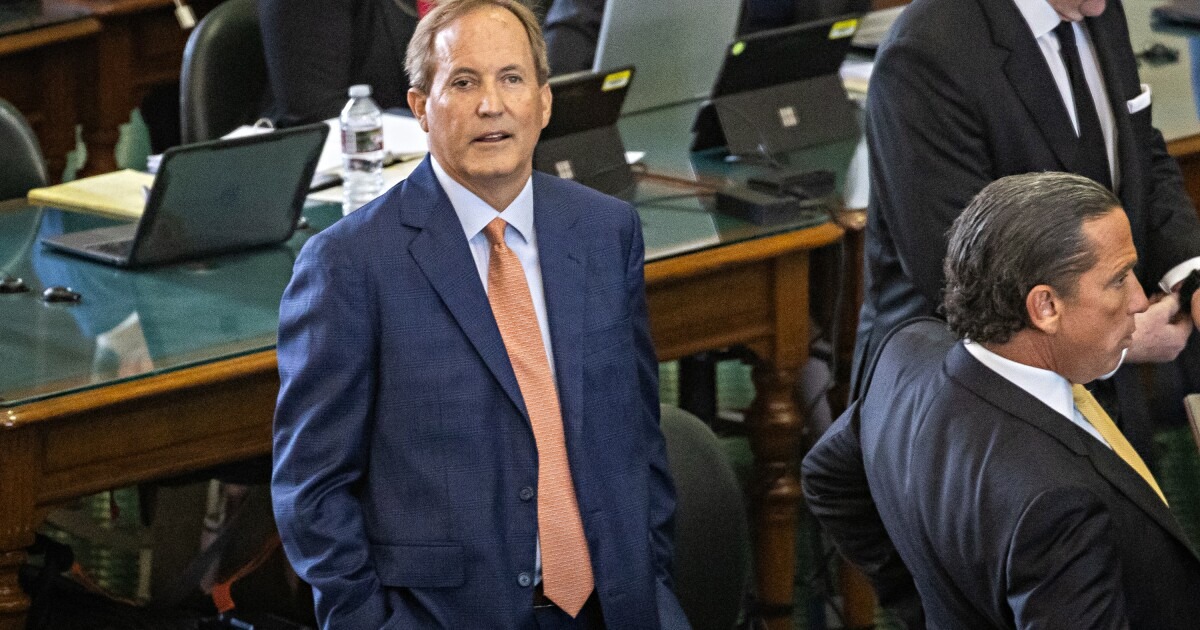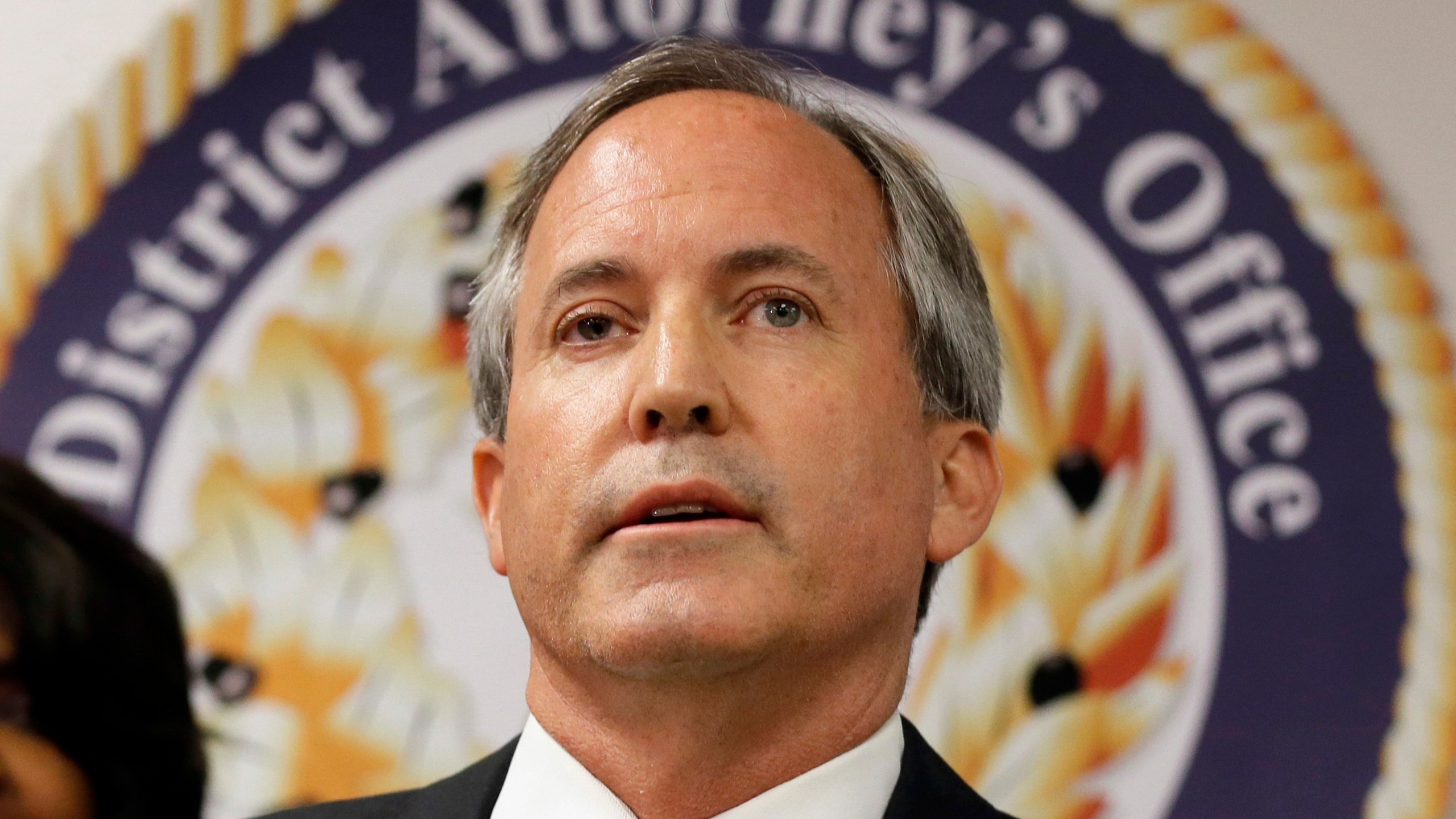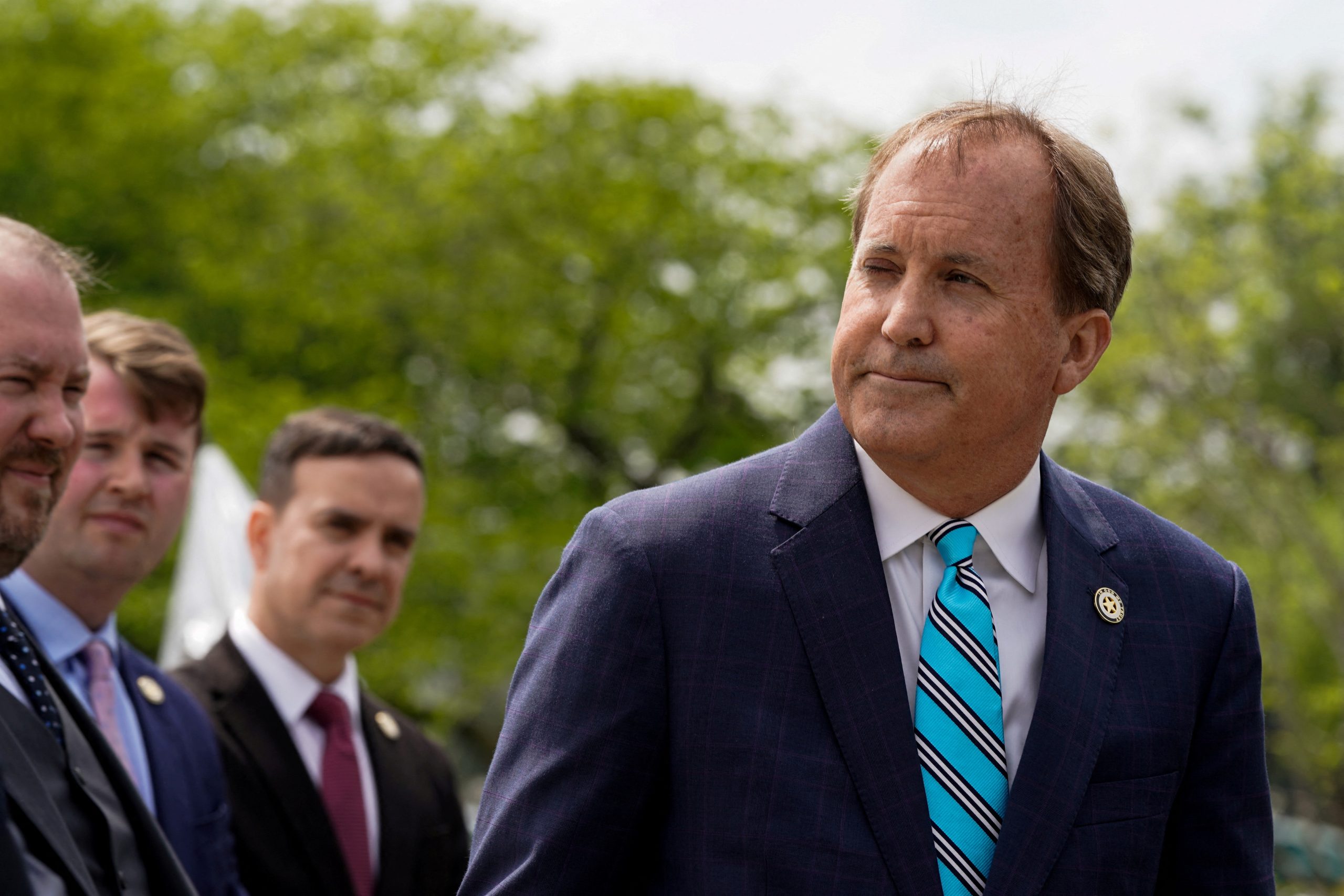Shortly after assuming office in 2015, Texas Attorney General Ken Paxton faced legal trouble, surrendering on three felony charges connected to securities fraud. Despite the severity of these accusations, Paxton’s subsequent actions over nearly a decade have highlighted a stark disparity in the application of justice.
Paxton’s case, which loomed over his career for about nine years, has culminated in an agreement that starkly contrasts with the potential penalties initially at stake.
Rather than confronting years in prison for first and third-degree felonies, Paxton is set to resolve the matter with no jail time by repaying the allegedly defrauded amount, participating in an ethics course, and completing community service hours.
This resolution follows Paxton’s acquittal in a state Senate impeachment trial, despite his impeachment by the Texas House for a range of misconduct, including bribery and misuse of public resources.

Attorney General Ken Paxton (Credits: KERA News)
The backdrop of this political drama includes allegations of favoritism and corruption, A reported job provided to Paxton’s mistress by a wealthy donor, which led to significant staff resignations.
Despite these controversies, Paxton found support from influential figures, including Donald Trump, which contributed to his acquittal in the Senate. This showcases the intricate dance of loyalty and power within Texas politics.
Paxton’s tenure has been marked not only by his legal battles but also by his aggressive legal stances, particularly on contentious issues like abortion and immigration.
His legal maneuvers have significantly impacted individuals like Kate Cox, who was driven out of state for medical care due to Paxton’s actions. Paxton’s outspoken stance on immigration and his challenge to the Deferred Action for Childhood Arrivals (DACA) program underscore his divisive approach to policy and enforcement.
Throughout these events, the response—or lack thereof—from entities like the state bar association, which refrained from disciplining Paxton for promoting unfounded election fraud claims, and the prolonged FBI investigation into Paxton’s conduct underscores a perception of impunity for specific political figures.

Texas Attorney General (Credits: ABC27)
This saga reflects Paxton’s legal journey and illustrates broader issues of justice, accountability, and the politicization of legal standards. It raises critical questions about the balance of power, the influence of political affiliation, and the integrity of legal institutions in Texas.
As Paxton continues his role, unburdened by the potential consequences of his actions, the case leaves a lasting impression on the state’s legal and political landscape. It highlights the challenges in ensuring accountability at the highest levels of government and the disparities in how justice is applied, depending on one’s political influence and status.
Paxton’s ability to navigate these legal and political challenges without facing significant repercussions exemplifies the complexities and contradictions of justice and governance in contemporary Texas.























